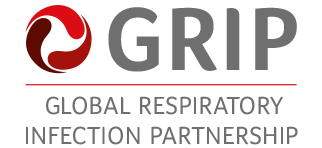Background
Background
Introduction
“We have to take up arms against antibiotic resistance as we are in a sea of trouble,” said meeting Chair Prof. Oxford in his opening address. His call was universally echoed by the other members of the Global Respiratory Infection Partnership.
Prof. Kozlov summarised the situation: “We need to stop talking, and start acting”
The challenge remains, however, in how to shift the focus from a recognition that antibiotic resistance is a growing global public health issue to the implementation of measures that facilitate behavioural change at a local level.
A hard-hitting approach has brought success in some countries. For example, in Brazil a change in the law that penalises pharmacies who sell antibiotics without prescription has been successful, said Prof. Pignatari.
Further measures may be needed. Prof. Oxford advocated greater political action and suggested that a strict limitation on the availability of antibiotics was necessary.
“We need proper controls, like we do with Class A drugs. Antibiotics are much more important than cocaine.”
Prof. Kozlov added that the problem of antibiotic resistance begins in the community sector. Since the previous GRIP meeting, understanding and changing the primary care perspective has become an increasing area of focus around the globe. GRIP members shared learnings from local initiatives targetting antibiotic use, particularly for respiratory tract infections, such as sore throat, a common reason for antibiotic prescribing in the community.
Educating Healthcare Professionals: Case Study
Guest speaker Dr Laura Noonan, a GP from Westmeath, Ireland, has been involved in a campaign to reduce antibiotic prescribing in primary care. Ireland is in 9th position in the rankings of European antibiotic use by country, with 21.7 defined daily doses (DDD)/1000 inhabitants/day. As with other countries, there are huge variations in doctor behaviour, often driven by the belief in primary care that failing to prescribe an antibiotic will adversely affect the doctor–patient relationship and patients will ‘shop’ for another doctor who will prescribe what they want.
Research among patients, in the surgery and online, on their knowledge and attitudes towards antibiotic use revealed the reasons why people consult a doctor in Ireland:
- 43% for symptom relief
- 30% for an antibiotic – “If they are told they are going to feel better or have advice on how to feel better when they leave, they will be happy without an antibiotic,” clarified Dr Noonan
- 13% to clarify the diagnosis
- 13% to obtain a certificate for employment/school leave purposes
Almost 60% of patients who leave the surgery without a prescription do not feel that the doctor has been dismissive of their symptoms, although over one in four feels the doctor did not recognise the severity of their symptoms.
“Better public education reduces the presentation to the GP,” said Dr Noonan. “Patients who understand the role of antibiotics are less likely to consult for an upper respiratory tract infection, with 45% trying an over-the-counter treatment first.”
In Ireland a local education initiative, established by experts in respiratory tract infections and general practitioners in partnership with Reckitt Benckiser, has created a suite of materials for healthcare professionals. The first phase targeted general practitioners, providing clinical updates and patient materials for use in consultations for upper respiratory tract infections. These were complimented by educational features in the medical press.
“In a previous study I conducted, using a patient information leaflet was shown to shorten consultation time from 11 minutes to 10 minutes,” Dr Noonan said. “The patient information leaflets in the Irish local educational initiative were also personalised and signed by the doctor, so it was a type of viral prescription,” explained Dr Noonan.
Critical in helping doctors make appropriate symptomatic recommendations was the provision of a summary of all the available products, active ingredients and dosages used for the symptomatic relief of the seven most common viral upper respiratory tract infections.
A second phase provided educational materials aimed at the pharmacy sector.
There is more that needs to be done, said Dr Noonan, such as a patient-targeted campaign, access to rapid testing, timely antibiotic resistance data and feedback of personalised prescribing data. “Incentivising doctors to follow antibiotic guidelines and obtain Continuing Professional Development points would also be a positive approach,” she later added.

